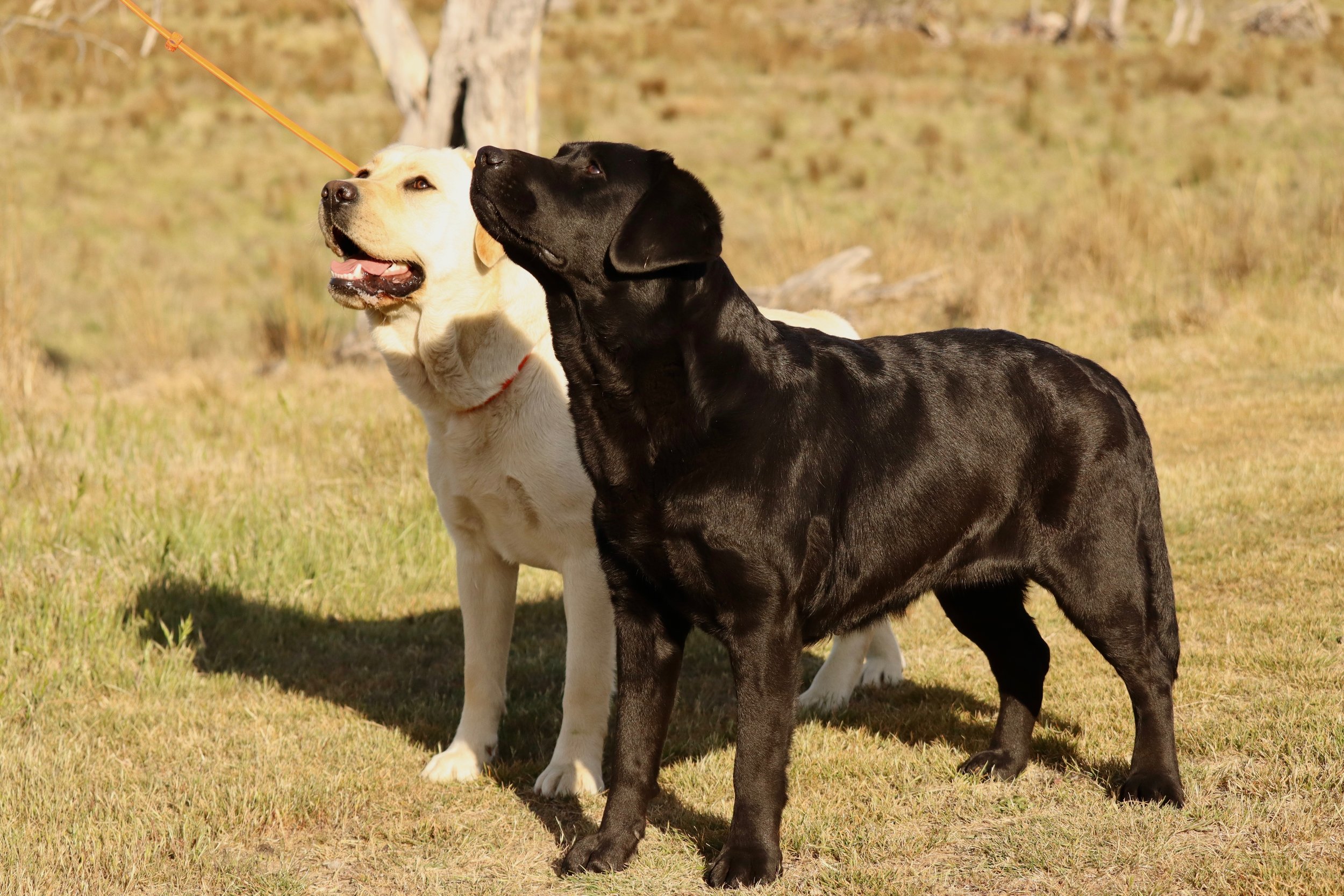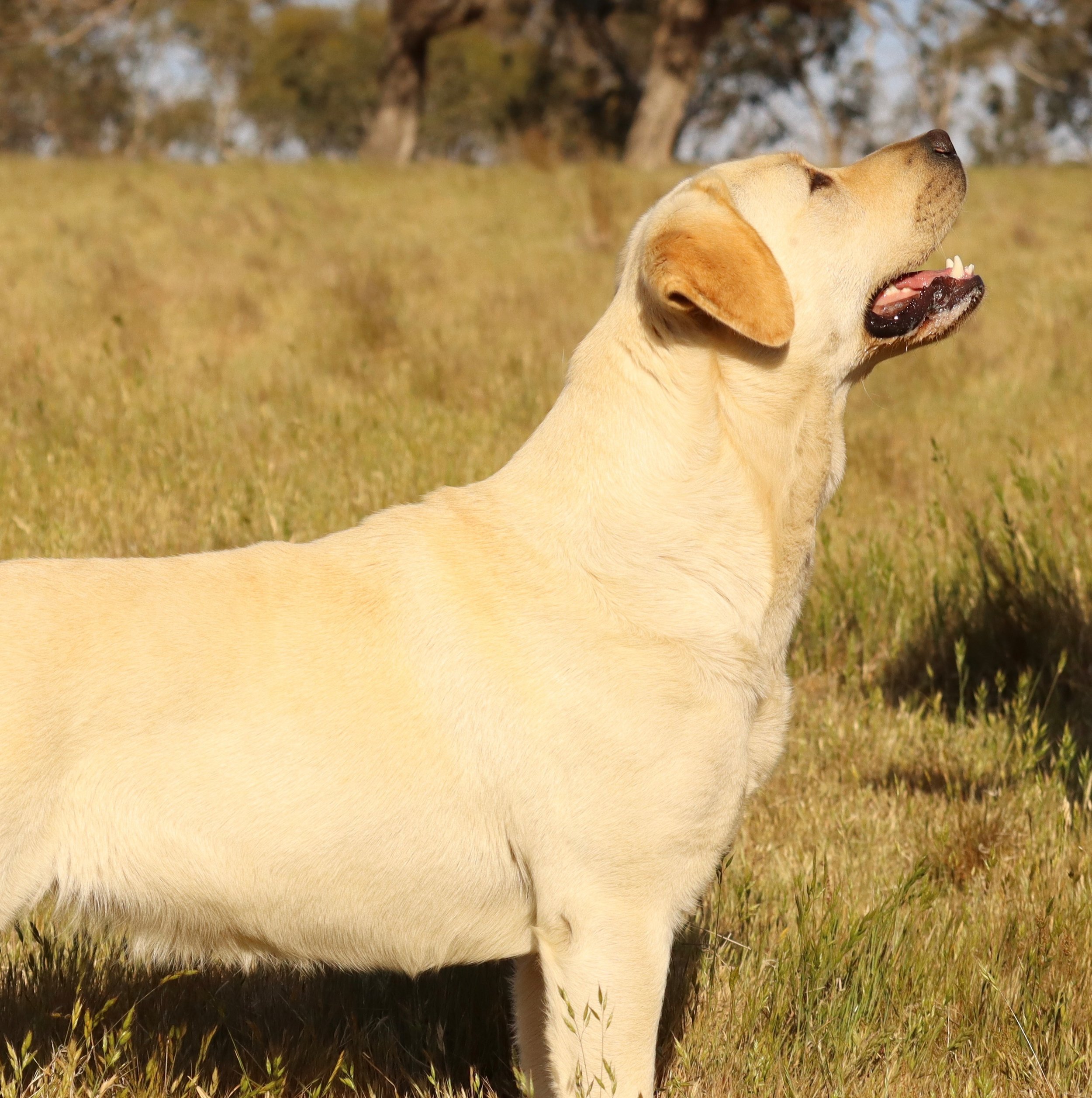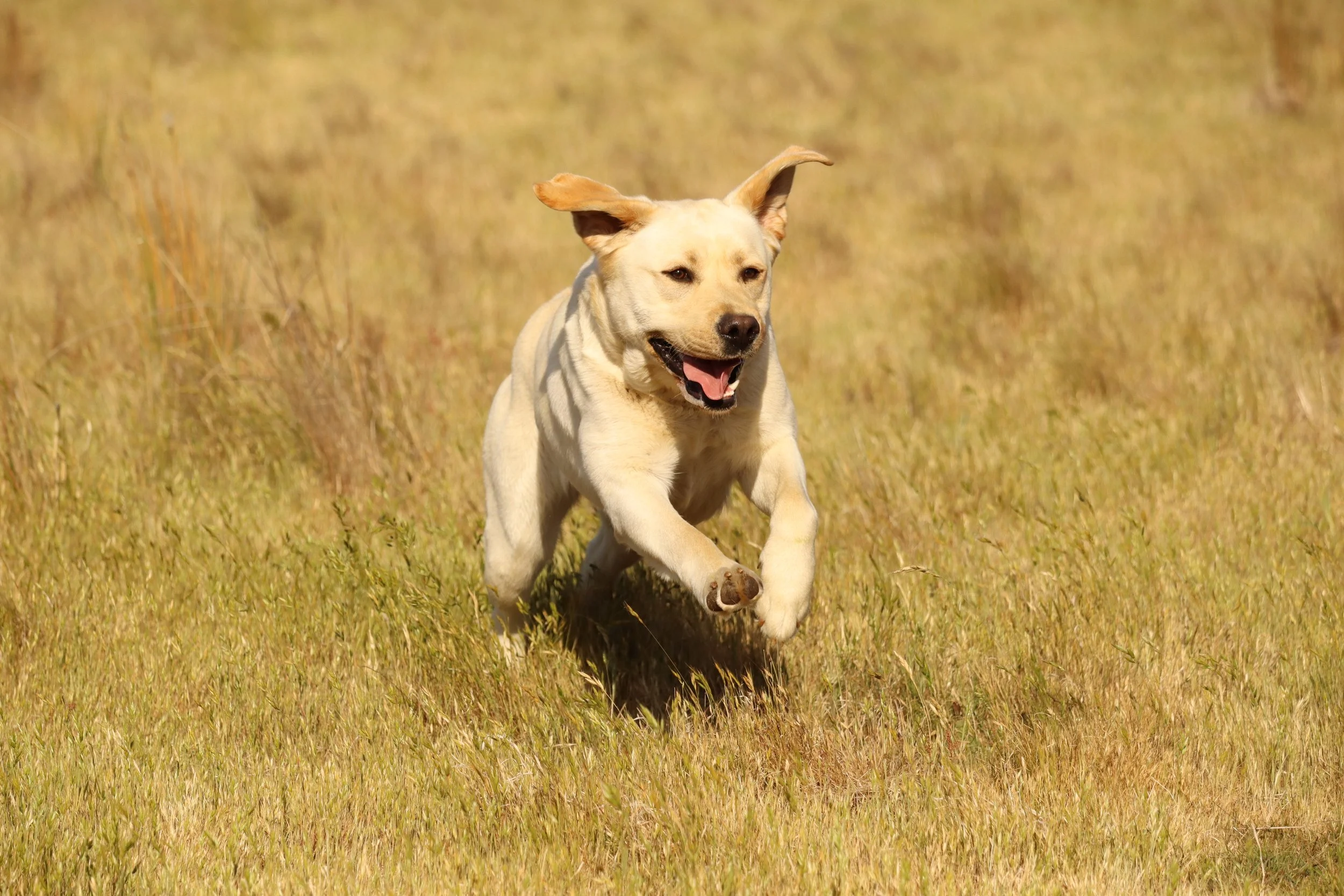



Who we are
At Ellsnick Labradors, we specialize in breeding exceptional Labradors that excel as both loving family pets and dedicated assistance dogs. Located on a picturesque farm near Goulburn, NSW, we are a DogsNSW registered breeder committed to ethical breeding practices. Our focus is on quality over quantity, with litters born infrequently to ensure careful attention to each one.
We prioritize the health, temperament, and wellbeing of our dogs, with all breeding dogs undergoing thorough health testing. Our puppies are raised in a nurturing family environment, where Early Neurological Stimulation (ENS) and early sensory experiences help them develop into well-rounded, adaptable companions.
Proudly, our Labradors are valued family members, and we take great pride in their care, socialization, and exposure to various environments. We also showcase our dogs at dog shows to highlight their outstanding qualities and further enrich their development.
At Ellsnick Labradors, our mission is to produce Labradors that embody the best of the breed—healthy, loyal, and capable—ensuring they bring joy and companionship to their future families.
So What is ENS?
Early Neurological Stimulation (ENS) is a developmental exercise that was first researched and developed by the U.S. military's "Bio Sensor" program. The program aimed to improve the performance of dogs used for military purposes. The ENS method involves exposing puppies to mild stressors in the form of tactile and environmental stimuli from a very early age—starting from the third day of life until the sixteenth day. This crucial period in a puppy's life is a time when the neurological system is rapidly developing.
The process includes five exercises designed to stimulate the puppies' neurological systems. These are:
Tactile stimulation: Gently tickling the puppy between the toes on any foot using a Q-tip.
Head held erect: Holding the puppy in both hands, the handler ensures the puppy’s head is directly above its tail.
Head pointed down: Holding the puppy with both hands, the handler positions the puppy’s head pointing towards the ground.
Supine position: Holding the puppy so its back is resting in the handler’s hands with its muzzle facing the ceiling.
Thermal stimulation: Placing the puppy feet-down on a damp towel at room temperature.
These exercises are believed to promote early neurological growth and development, leading to several beneficial outcomes. Puppies that undergo ENS are often more resilient to stress, have superior cardiovascular performance, stronger heartbeats, stronger adrenal glands, more tolerance to stress, and greater resistance to disease.
For breeders like Ellsnick Labradors, implementing ENS can contribute significantly to raising healthier, more adaptable, and well-rounded puppies. This technique is not only a foundation for future training but also helps in preparing puppies for the challenges they might face in their lives, making them excellent candidates for a variety of demanding roles, from service dogs to beloved family pets.
Health Tests Performed at Ellsnick Labradors
At Ellsnick Labradors our dogs are health tested to ensure we are reproducing the healthiest animals possible. We are committed to ensuring our dogs are not affected by the following conditions;
-
Exercise Induced Collapse (EIC) is a genetic condition mainly affecting Retrievers and Spaniels. It results in the dog collapsing after periods of intense exercise, even if they are normally able to cope with lower levels of exercise. There is a DNA test available which can indicate if a breeding dog is carrying this disease.
-
These breeders have had x-rays taken on their breeding dogs to assess the quality of their elbow joints. Dogs with very low ‘elbow scores’ are less likely to develop elbow problems in the future and less likely to pass hereditary elbow problems on to their puppies
-
These breeders have had x-rays taken on their breeding dogs to assess their ‘hip score’. Dogs with low hip scores have better hips and are less likely to develop problems in the future. Most large and medium sized dog breeds benefit from hip scoring to ensure they are unlikely to pass hereditary hip problems on to their puppies.
-
Progressive Retinal Atrophy (PRA) in dogs is a type of genetic eye disease causing deterioration of the retina and eventually, blindness. There are a variety of sub-types of PRA, which can occur in various breeds. There are various DNA tests available to identify whether a breeding dog is carrying this condition.
-
(CMS) is genetic disease that causes extreme muscle weakness after just a short amount of exercise. It can result in puppies or dogs who collapse after only five to thirty minutes of exercise. There is a DNA test available to identify if a breeding dog is carrying this condition.
-
Canine Elliptocytosis is a rare genetic disease causing the red blood cells to be abnormally elliptical in shape, rather than round. It generally does not cause a clinical problem to affected dogs, but puppies may be mildly anaemic and smaller than others. There is a DNA test available to identify if a breeding dog is carrying this disease.
-
Centronuclear myopathy (CNM), is a genetic muscle disease that occurs in Labradors. A DNA test is available to identify if a breeding dog is carrying this condition.
-
Cone degeneration is a genetic eye disease that results in ‘day blindness’, extreme sensitivity to light, and poor vision. The condition begins in puppies and gradually worsens as they get older. There are various types of cone degeneration in the dog, including Achromatopsia. There is a DNA test available in certain breeds to identify whether a breeding dog is carrying this condition.
-
Congenital Macrothrombocytopenia (CM) is a mild disease which normally does not have any impact on an affected dog’s health or lifespan but can cause concern if noticed on routine bloodwork without knowing the cause. It is a blood disease resulting in low numbers of very large platelets. There is a DNA test available to identify if a breeding dog is carrying this condition.
-
This condition mainly affects Newfoundlands although other breeds can be affected. It is a genetic condition which results in the production of kidney and bladder stones. There is a DNA test available to confirm that breeding dogs are not carrying this condition.
-
This is a disease affecting the spinal cord of older dogs, initially causing wobbliness and eventually hindlimb paralysis. It can affect a wide range of breeds. There is now a DNA test that can indicated if a breeding dog is carrying this disease.
-
Hereditary Nasal Parakeratosis (HNPK) is a genetic condition that can affect Labradors. It causes very dry and crusty skin around the nose that predisposes to infections. There is a DNA test available to determine whether a breeding dog is carrying this condition.
-
Hyperuricosuria (HUU) is a genetic disease that causes a build-up of uric acid in the urine, predisposing to painful bladder and kidney stones. It can occur in a range of breeds. There is a DNA test available to identify whether a breeding dog is carrying this disease.
-
Malignant Hyperthermia (MH) is a rare genetic condition that causes adverse reactions to anaesthetic drugs. It results in the body rapidly overheating and is sometimes fatal. There is now a DNA test available to identify if a breeding dog is carrying this condition.
-
Macular Corneal Dystrophy (MCD) is a rare genetic eye disease that has been identified in Labradors. It causes cloudy eyes and potential vision impairment. There is a DNA test available to identify if a breeding dog is carrying this condition.
-
X-linked myotubular myopathy (XLMTM) is an inherited muscle disease causing severe, progressive muscle atrophy in puppies. Affected puppies are small and lack coordination. Within weeks, the puppies may have difficulty holding their head up or standing and may collapse after exertion. There is a DNA test available to identify whether a breeding dog might be carrying this condition.
-
Narcolepsy is a genetic disease which causes affected animals to fall asleep suddenly following periods of excitement, such a feeding or play. These dogs might collapse and appear drowsy or might completely fall asleep. They usually grow out of the condition after about one year of age. There is a DNA test available to identify if a breeding dog is carrying this condition.
-
Pyruvate Kinase Deficiency (PKD) is a genetic disorder resulting in low levels of an energy-producing enzyme in the body. Affected dogs can experience lethargy, exercise intolerance and severe anaemia. There is a DNA available to identify whether a breeding dog is carrying this condition.
-
Skeletal Dysplasia is an inherited form of dwarfism which causes the leg bones to grow much shorter than is proportional for the body. Affected legs will be short and slightly bowed outwards. Often the forelimbs are more affected than the hindlimbs, which can make the condition more difficult to spot in subtle cases. There is a DNA test available to identify if a breeding dog is carrying this condition.


